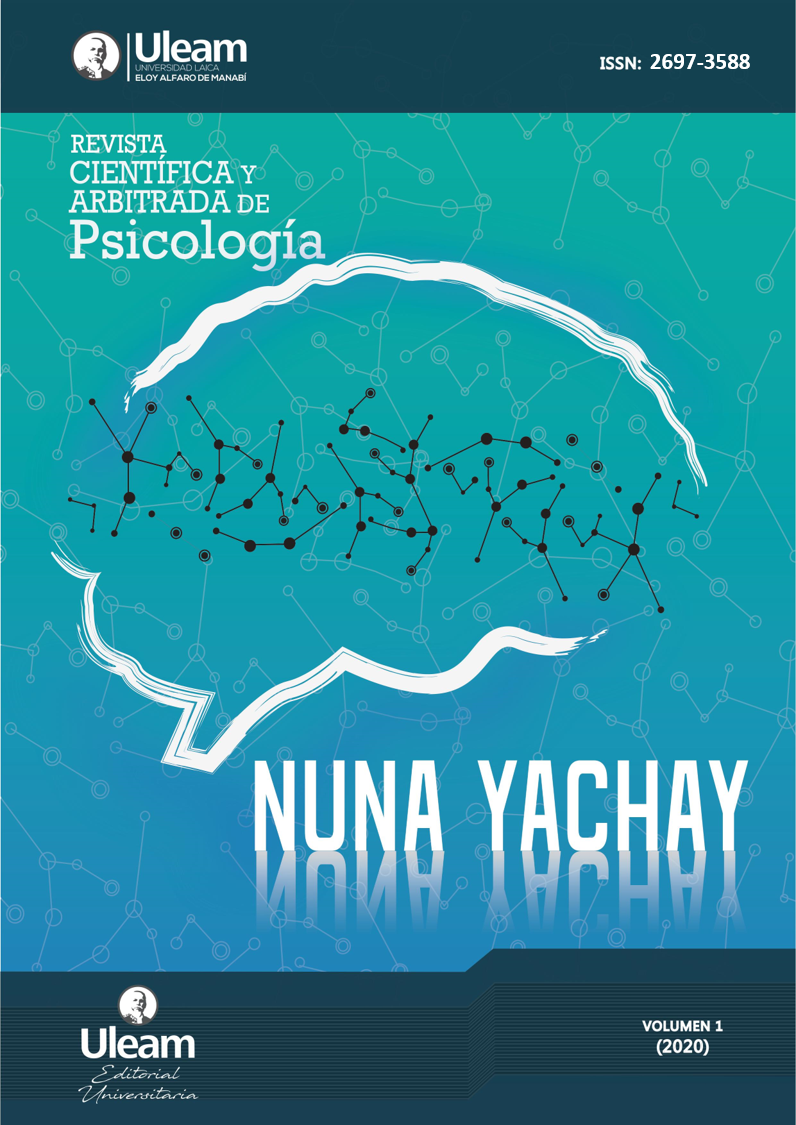El comportamiento suicida: un enfoque neurocognitivo
Palabras clave:
Comportamiento suicida, enfoque neurocognitivo, neuropsicologíaResumen
En el presente estudio se realiza un análisis sistemático de la literatura de los artículos que presentan gran relevancia en relación al comportamiento suicida desde el enfoque neurocognitivo. Dentro de este apartado se delimitará los aportes de la neuropsicología sobre el suicidio y se estudiarán las funciones y áreas del sistema nervioso que están comprometidas, tales como la corteza prefrontal y las funciones ejecutivas. Dentro de la revisión bibliográfica se utilizaron palabras claves como: neuropsicología, intento autolítico, conducta suicida y suicidio, los artículos seleccionados se identificaban por medio de la lectura del resumen para después revisar el articulo completo. El presente estudio da paso a investigar el enfoque neurocognitivo el cual es un modelo relativamente actual, brinda información sobre los beneficios de realizar una revisión sistemática de la literatura desde la psicología y obtiene los sustentos teóricos para la elaboración de guías de intervención del suicidio.
Palabras claves: Comportamiento suicida, enfoque neurocognitivo, neuropsicología.
ABSTRACT
In the present study, a systematic analysis of the literature of the articles that present great relevance in relation to suicidal behavior from the neurocognitive approach is carried out. Within this section, the contributions of neuropsychology on suicide will be delimited and the functions and areas of the nervous system that are compromised, such as the prefrontal cortex and executive functions, will be studied. Within the bibliographic review, keywords were used such as: neuropsychology, suicide attempt, suicidal behavior and suicide, the selected articles were identified by reading the abstract and then reviewing the complete article. The present study gives way to investigate the neurocognitive approach, which is a relatively current model, provides information on the benefits of conducting a systematic review of the literature from psychology and obtains the theoretical support for the development of suicide intervention guides..
Keywords: Suicidal behavior, neurocognitive approach, neuropsychology.
Fecha de recepción: 09 de noviembre de 2020; Fecha de aceptación: 05 de enero de 2021; Fecha de publicación: 08 de enero de 2021.
Descargas
Citas
Clayton, P. (2016). Conducta Suicida. University of Minnesota School of Medicine, 5-12. Obtenido de https://www.msdmanuals.com/es-ec/professional/SearchResults?query=Conducta+suicida
Felices, G. (2007). Enfoque neuropsicológico comportamental para abordar temas relativos al ser humano. Revista de Diálogos Pedagógicos, 35-39. Obtenido de file:///C:/Users/EVOTEC/Documents/416-656-1-PB.pdf
Franziska Gerstner, R. (2017). Factores predictores y protectores para tendencias suicidas en adolescentes en una zona afectada por el terremoto del 16 de abril en Ecuador. Quito, Pichincha, Ecuador.
Jiménez, L., Blasco, H., Braquehais, M., Domínguez, A., & Baca, E. (2011). Endofenotipos y conductas suicidas. Revista de Psiquiatría, 39(1), 61-69.
Mantilla. (2019). Mundo Nano. Revista Interdisciplinaria en Nanociencias y Nanotecnología, 9(17), 43. Obtenido de http://www.revistas.unam.mx/index.php/nano/
Ministerio de Sanidad, Política Social e Igualdad. (2012). Guía Práctica: Clínica de Tratamiento y Prevención de la Conducta Suicida. Madrid: Avilia-t.
OMS. (2014). Prevención del Suicidio: un imperativo global. Ginebra: Organización Mundial de la Salud.
OMS. (2018). Organización Mundial de la Salud. Obtenido de Who.int: http://www.who.int/es/news-room/fact-sheets/detail/suicide
Pacheco, T. (2016). Factores predictores de la conducta suicida y actuaciones preventivas en el ámbito extrahospitalario. Universidad Complutense de Madrid: Facultad de Psicología, 36-45. Obtenido de https://eprints.ucm.es/38876/1/T37667.pdf
Quintanar, F. (2007). Comportamiento suicida: perfil psicológico y posibilidades de tratamiento. México D.F.: Editorial Pax Méxido.
Santos, A. (2014). Neurodesenvolvimiento. Institución de Psicología y Ciencias de la Educación: Facultad de Ciencias Humanistas y sociales, 56-62.
Suarez, Y. (2012). La Inteligencia Emocional como Factor Protector ante el Suicidio en Adolescentes. Revista de Psicología GEPU, 3(1), 180-210. Obtenido de https://revistadepsicologiagepu.es.tl/La-Inteligencia-Emocional-como-Factor-Protector-ante-el-Suicidio-en-Adolescentes.htm
Vélez, Y., Luaces, L., & Rossello, J. (2012). Ideación suicida: Síntomas depresivos, pensamientos disfuncionales, autoconcepto, y estrategias de manejo en adolescentes puertorriqueños. Revista Puertorriqueña de Psicología, 23(1), 2-10. Obtenido de http://www.ojs.repsasppr.net/index.php/reps/article/view/204/204






3.jpg)











